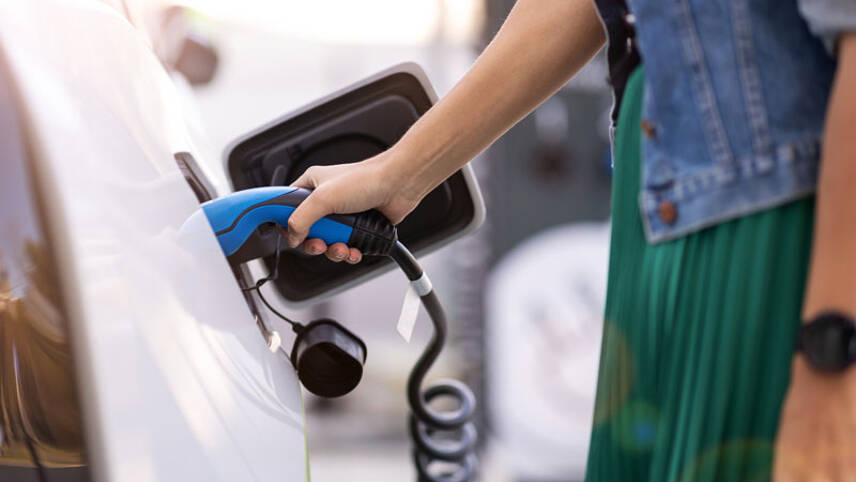Register for free and continue reading
Join our growing army of changemakers and get unlimited access to our premium content

Stock image
The Department for Energy Security and Net-Zero (DESNZ) this week confirmed the allocation of £4.8m to these projects, which should help homes and businesses to reduce energy costs.
Some projects enable stored energy to be used in buildings and appliances, others let energy consumers discharge energy back to the grid during peak times, earning money for doing so.
The UK Government notably has a vision of making ‘smart’ EV charging the norm at workplaces and homes by 2025.
For businesses with fleets in particular, DESNZ stated, vehicle-to-everything systems can help to build the business case for integrating onsite solutions such as solar panels, as they enable energy storage in a manner that can cut costs and generate income.
One of the four successful projects will involve trials of wireless vehicle-to-everything technologies with a fleet of 20 Royal Mail delivery vehicles based in Central London. This project is being spearheaded by Electric Green and QEnergy.
Northwards in Gateshead, Otaski Energy Solutions will trial a bidirectional charging solution with a string of local fleet operators, assessing the potential for energy flexibility service provision to the grid.
The other two successful project leaders are 3ti Energy Hubs, which is deploying a bidirectional charging and solar canopy solution in Surrey over a 17-month period, and Hangar19, which is demonstrating a three-pronged bidirectional charger that is compatible with a wider range of EVs.
3ti’s chief technology officer Mark Potter said: “Everybody wants more EVs on the grid. They represent a massive scale, distributed energy resource that can be used to balance real-time supply and demand.
“Out project will prove that bi-directional EV charging can work in the real world. Connected EVs will be teamed together to act as virtual power and energy storage facilities, with each car releasing and replenishing its stored energy according to user preferences and grid demand.”
Affordability and Skills Minister Amanda Solloway called the projects “incredibly exciting” in terms of innovation and potential economic impact.
Solloway said: “By backing this technology, we could save families hundreds of pounds a year, while also supporting jobs, investment and growth.”
Funding for these projects is being derived from the £65m Flexibility Innovation Programme within the Government’s £1bn Net-Zero Innovation Portfolio. The Portfolio first launched in 2021 when Rishi Sunak, now Prime Minister, was Chancellor.
Related news: UK Government confirms £79m boost for grid upgrades to ease ultra-rapid EV charger rollout


Please login or Register to leave a comment.